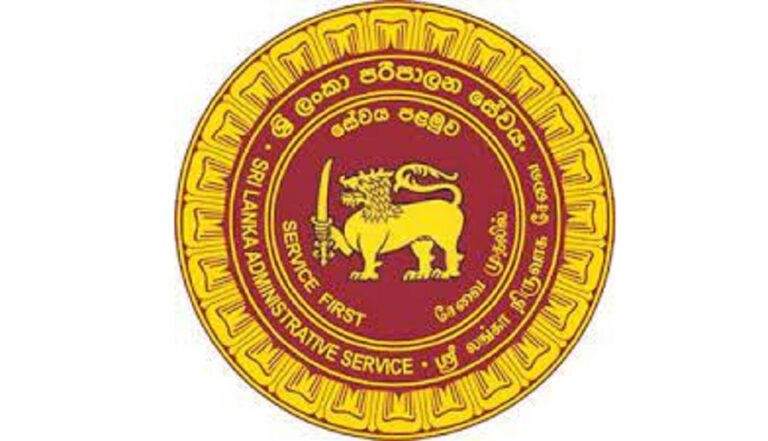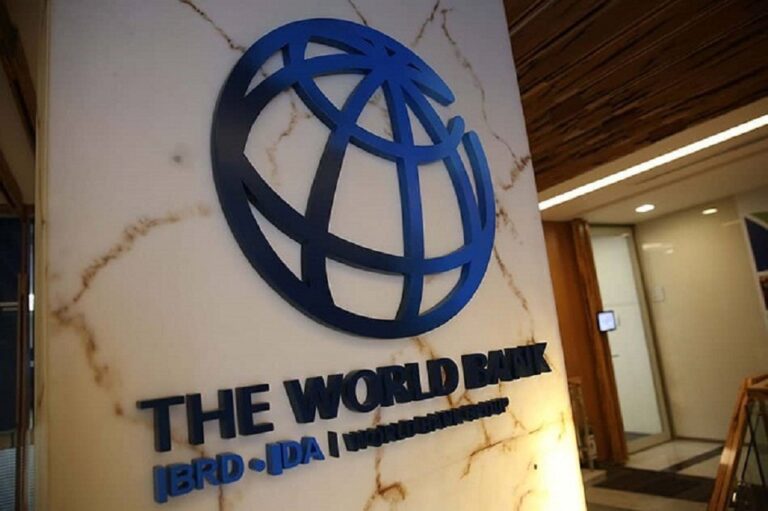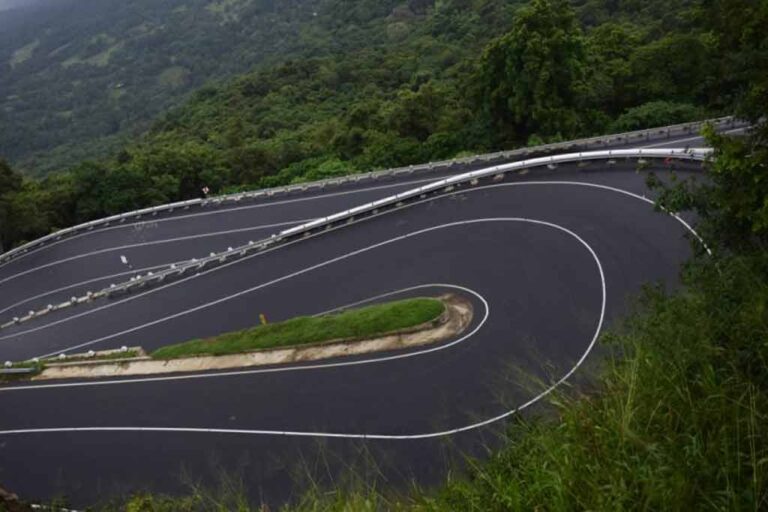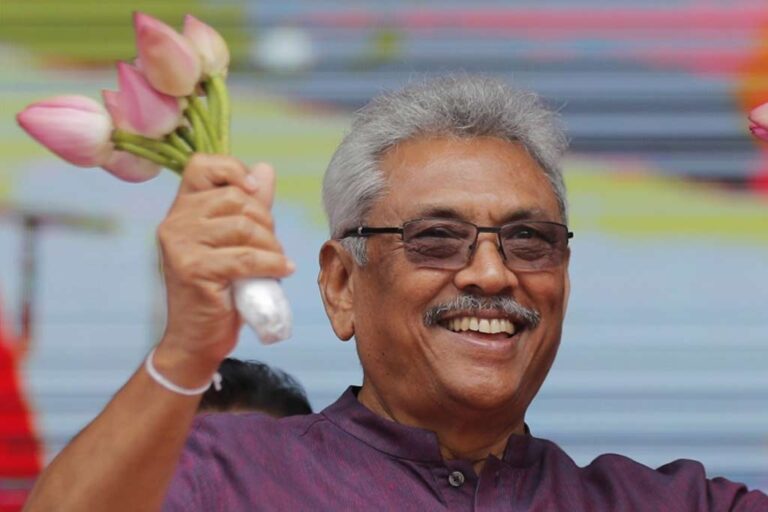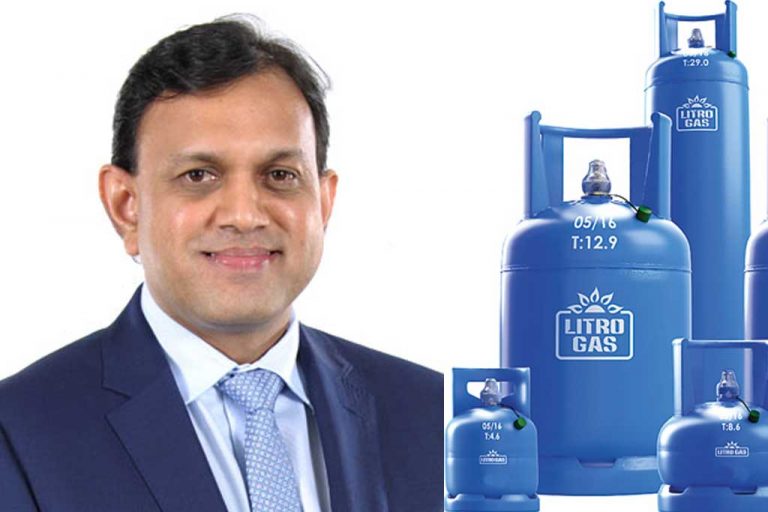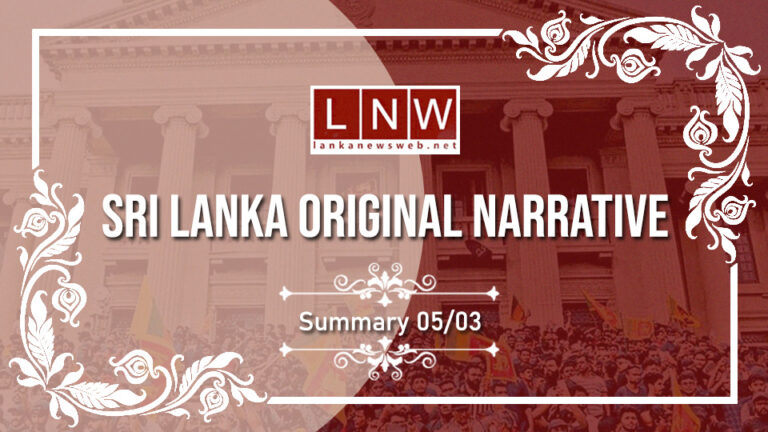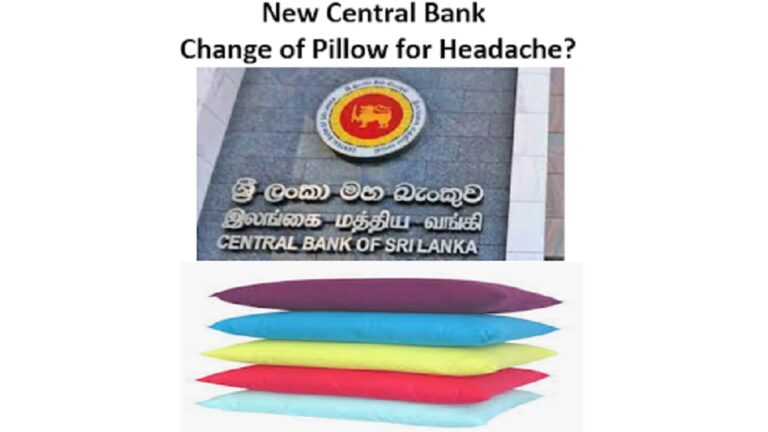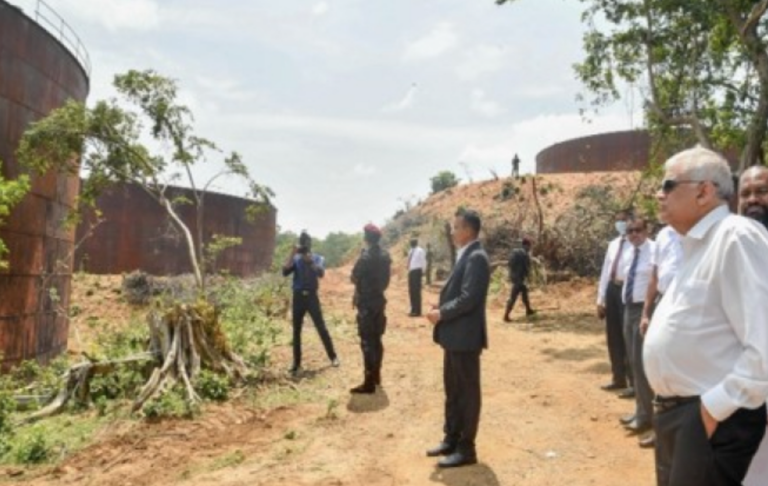Sri Lanka’s public administration sector, including divisional secretariats, is set to accept the challenge of becoming more efficient and productive and efficient, willingly enhancing businesses and investments in the island.
The Parliamentary Select Committee (PSC) that looks into enhancing the ease of doing business has asked the Sri Lanka Administrative Services Association (SLASA) recently to submit a proposal towards this end.
Public administration sector including divisional secretariats has been directed to increase productivity and efficiency, when starting businesses and investments in Sri Lanka.
A group of officials representing Sri Lanka Administrative Services Association, Sri Lanka Accountancy Services Association, Sri Lanka Planning Services Association were summoned to the Select Committee of Parliament to study the practical problems and difficulties.
These issues have arisen in relation to enhancing the rank in the Ease of Doing Business Index in Sri Lanka and public officials make its proposals and recommendations when they met recently under the chairmanship of Member of Parliament Madhura Withanage.
Increasing the efficiency of the public administration sector and process in starting new businesses and investment opportunities in Sri Lanka was discussed at length at the meeting.
The committee pointed out that many investment and business opportunities are lost to the country as the process to be carried out to start investment or business in the current administrative structure is not efficient.
The committee emphasized that the management principles of the administrative sector including district secretariats and divisional secretariats should be changed accordingly.
Thus, the need to formulate new and permanent policies in this regard was emphasized in the formulation of public policies.
It was discussed that there are currently 332 divisional secretariats in Sri Lanka and the lack of a proper system to monitor their functioning is a major shortcoming.
For the convenience of the investors, it was proposed to establish a separate ‘Investment Cell’ for each district secretariat to facilitate investors and provide prompt service. The need for proper training programs for those public officials was also discussed here.
Sri Lanka Administrative Services Association pointed out the need to carry out reforms in the state administrative sector, and it was also suggested to take steps to establish a separate ministry for administrative reforms in the future.
It was also suggested to call all the divisional secretaries and hold an awareness program for them.
It was also discussed about the difficulty in obtaining land required for investments through the Divisional Secretariats.
It was discussed that land irregularities are taking place on a large scale especially in the northern and eastern provinces and the need for immediate intervention.
Sri Lanka public administration to become more efficient and productive.
Two UK and Australian firms continue mineral explorations in the North East
The Eastern and Northern Coastline of Sri Lanka have been made into a busy work site via mineral explorations at present with at least two UK and Western Australian companies have resumed activities, official sources said.
Capital Metals PLC, a UK mineral resources company listed on the London Stock Exchange, is ready to commence development of its high grade mineral sands project in the Eastern Province.
The extensive studies completed by the local Sri Lankan subsidiary, Damsila Exports Ltd. indicated the availability of commercial quantities of high grade mineral sands in this region.
Most importantly, Capital Metal’s pioneering project will, no doubt, open up a new industry in mining heavy mineral sands and other valuable mineral resources in the country and pave the way for similar projects in the future, opening up a much-needed new export industry.
Further Western Australia-headquartered Titanium Sands has announced that it is proceeding with the formal mining licence application process for its Mannar Island project, in Sri Lanka.
The company says final exploration resource work over its five main licences all exceed the Geological Survey and Mines Bureau (GSMB) minimum exploration requirements and confirm a significant heavy mineral sands project.
However Capital Metals PLC, a UK mineral resources company listed on the London Stock Exchange, is ready to commence development of its high grade mineral sands project in the Eastern Province.
The extensive studies completed by the local Sri Lankan subsidiary, Damsila Exports Ltd., indicated the availability of commercial quantities of high grade mineral sands in this region.
Local investment company, Keynes Investments Ltd., was recently brought in to hold 60% of Damsila. Keynes is principally held by Dinal Peiris, who is also the Chairman of Lanka Aluminium Industries PLC Group and several other well-known companies in Sri Lanka.
The project commenced in 2015 with Capital Metals, a specialized mineral resource exploration and development company with significant international experience, acquiring ownership of Damsila which held the initial exploration licenses.
With investment from Capital Metals, Damsila completed numerous studies and obtained approval from the Department of Coast Conservation and Coastal Resources Management for its environmental impact studies following extensive local community and governmental consultation.
With total expenditure to date of over $ 11 million, Damsila is now awaiting final approval to commence development.
Key advantages of the planned operations are that no blasting or chemicals are required and there will be continuous cleaning and restoration of the mined areas to remove the black mineral sands leaving the golden sands in place.
This project will also help to position Sri Lanka as a strategic and responsible source for these critical minerals in the global marketplace,” said Capital Metals CEO and Director Michael Frayne.
The project requires a total investment of over us $ 80 million and will bring a multitude of benefits to Sri Lanka and its people as it will generate much needed foreign exchange from export income, significantly upgraded infrastructure, employment and skills transfer, as well as various programmes to support local communities.
It is estimated that over 300 new direct jobs will be created and the Sri Lankan Government will receive over $ 100 million in royalties and taxes.
WB to release another US$ 1.5 bn for SL
By: Isuru Parakrama
Colombo (LNW): The World Bank has agreed to release an aid of US$ 1.5 billion for Sri Lanka, days after the International Finance Corporation (IFC), one of the WB subsidiaries, released a forex facility of US$ 400 million for three private banks in the island nation amidst the worst economic crisis it suffers from.
The US$ 1.5 billion aid is set to be released for the next two years under several stages, and its first stage is believed to be released after Sri Lanka enters an agreement for a programme with the International Monetary Fund (IMF).
Kandy – Mahiyanganaya Road closed from 18 Bends Road
By: Isuru Parakrama
Kandy (LNW): The Kandy – Mahiyanganaya main road has been closed from the 14th bend of the 18 Bends Road aka ’18 Wanguwa’ area, due to the collapse of a mound nearby, revealed the Disaster Management Centre.
Price of gold drops following Rupee appreciation
By: Isuru Parakrama
Colombo (LNW): The price of gold has dropped concurrent to the strengthening of the Sri Lankan Rupee against the US Dollar, indicating a decline of about Rs. 17,000 – 15,000, disclosed the All Ceylon Jewellery Association.
Accordingly, the price list as of yesterday (04) reveals that the price of a 24-carrot-pound of gold is Rs. 170,500 and the price of a 22-carrot-pound of gold, Rs. 157,000, the Association added.
Chemical fertiliser ban incurs Rs. 245 bn loss: Professor
By: Isuru Parakrama
Colombo (LNW): The ban imposed on the use of chemical fertiliser and agro-chemicals by the previous Gotabaya Rajapaksa regime incurred a loss of over Rs. 245 billion within 2022 alone, disclosed Prof. Wasantha Athukorala of the Economics Unit of the University of Peradeniya.
The loss incurred due to the decline in the production of paddy and tea triggered by the fertiliser ban and in the backdrop every farmer has to suffer a loss of about Rs. 100,000, he added citing findings of a special study into the matter.
LITRO announces no price revisions for LP Gas
By: Isuru Parakrama
Colombo (LNW): State-run LP Gas distributor LITRO said there will be no increase in gas prices for March, 2023 despite the determined price revision in compliance with the global market.
The decision has been taken in response to the recent strengthening of the Sri Lankan Rupee, Company Chief Muditha Peiris said.
Accordingly, the existing prices will be in effect for the month March, he added in a statement.
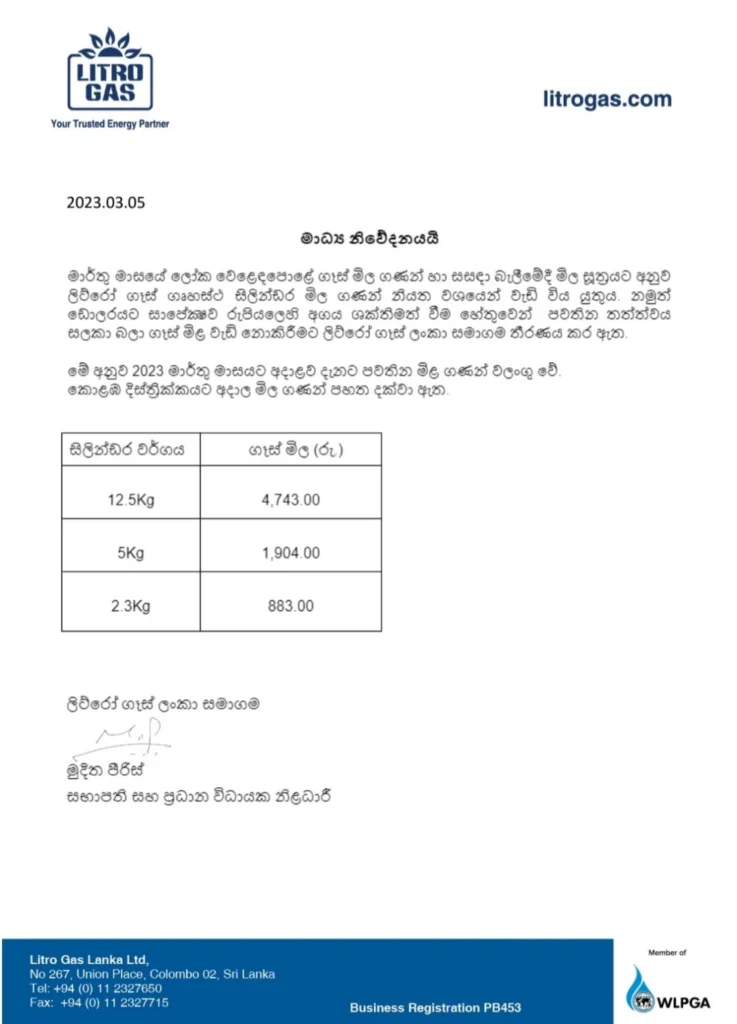
Sri Lanka Original Narrative Summary: 05/03
- IMF praises the Central Bank Monetary Board’s decision to raise the policy interest rate: says it reflects the Central Bank’s commitment to the inflation target and is an important part of the IMF’s EFF programme.
- SLPP Rebel MP Udaya Gammanpila charges that the Director of USA’s Intelligence Agency CIA William Burns had visited Sri Lanka on Feb 14 as a part of a top secret visit to the island: also says the Govt and US have maintained a silence in this regard.
- Atomic Energy Bureau says it is considering 3 locations (Trinco, Hambantota and Mannar) for the proposed Russian mini Nuclear Power Plant: also says the Govt intends to consult India before signing an Agreement with Russia, and that the Govt may opt for a fully Russian-funded nuclear plant or a joint-venture.
- Consumer Affairs Authority says it is mandatory to display the SLS mark on local canned fish: also says it has received reports that local canned fish is being put up for sale without the SLS mark.
- General Secretary of the Sri Lanka Podujana Peramuna Sagara Kariyawasam says the Party has decided to expel Professor G L Peiris from the Chairmanship of the Party.
- President Ranil Wickremesinghe to dissolve the National Salaries Commission: the role of the Commission had been previously carried out by the Dept of Management Services of the Finance Ministry.
- Govt Ayurvedic Doctors Assn President Dr. P Hewagamage claims there is a shortage of the supply of at least 130 essential ingredients used for manufacturing ayurvedic medicines: says this could cause a serious issue for the Ayurvedic medicine manufacturing in the future.
- Singapore-based firm Kreate Pte Ltd is reported to open SL’s first foreign funded Casino and entertainment hub at the 2nd floor of the Colombo Lotus Tower: the total investment for the project is claimed to be a massive USD 1 bn.
- Colombo Stock Market’s ASPI gains 1.39% on the back of the previous week’s gain of 5.28%, ending 2 weeks of losses.
- Power & Energy Ministry to submit Cabinet paper to introduce a new price formula for solar power while abolishing the tariff revision introduced to the sector last year.
New Central Bank’s Board Governance – A change of the pillow for the headache?
When I was reading provisions in the new Central Bank Bill relevant to two new Boards proposed for the new Central Bank, it reminded me of the minute placed by Mr. A S Jayawardena on the top of the first page of the proposal for the current Monetary Policy Committee submitted to him by the Economic Research Department in 2001 in line with Central Bank Modernization program of the World Bank. It was a new technical mechanism proposed to help the Monetary Board to make monetary policy decisions on better macroeconomic grounds.
His minute was, “Approved. This seems like හිසරදයට කොට්ටෙ මාරු කිරීමක්!” The English version reads as ” a change of the pillow for the headache.”
The new bill proposes two Boards for the Central Bank. Those are the Governing Board and the Monetary Policy Board.
This short article, the third in the series, shows that the proposal for the two Boards is not only a change of the pillow for the Central Bank headache but also unacceptable in public governance and accountability principles and will destabilize the Central Bank as well as the economy.
A few glaring 21 issues are presented below. However, technical issues relating to powers, functions and responsibilities of the two Boards with regard to objects, powers, duties and and functions of the Central Bank as set out in the section 7 of the bill are not covered in the article.
Governing Board (GB)
Role – Overseeing the administration and management of the affairs of the Central Bank and the determination of general policy of the Central Bank other than the monetary policy
Composition – 7 members, Governor as the Chairman and 6 other members who have expertise in economics, banking, finance, accounting and auditing, law or risk management
Fitness and propriety criteria – Sections 17 and 15(2) of the bill
Monetary Policy Board (MPB)
Role
- Charged with the formulation of monetary policy of the Central Bank and implementation of a flexible exchange rate regime in line with the flexible inflation targeting framework in order to achieve and maintain domestic price stability.
- Regulate the supply, availability, and cost of money, taking into account the macroeconomic and financial condition of Sri Lanka.
Composition – 11 members, Governor as the Chairman, 6 GB members, two external experts in economics or finance and two Deputy Governors (DGs) in charge of price stability and financial system stability.
Fitness and propriety criteria – The section 17 and 15(2)of the bill.
Public Accountability Issues
I wish to present 21 glaring issues as listed below.
1. Fitness and propriety criteria prescribed for members of the GB and MPB and externally appointed DG are largely taken from the section 42(2) of the Banking Act. However, the second item, 42(2)b), in the Banking Act has been unreasonably amended in the Central Bank Bill in the 17(2)(a) as follows.
- “has committed or has been connected with the commission of, any act which involves fraud, deceit, dishonesty or professional misconduct.”
- However, the Banking Act sections 42(2)(b) reads as follows; that there is no finding of any regulatory or supervisory authority, professional association, any Commission of Inquiry, tribunal or other body established by law in Sri Lanka or abroad, to the effect that such person has committed or has been connected with the commission of, any act which involves fraud, deceit, dishonesty or any other improper conduct;
- Therefore, the Banking Act provision has been amended with hidden motives. Accordingly, the source to establish the evidence on committal of fraud, deceit, dishonesty or professional misconduct has been omitted. The reason could be to hide several findings of the Bond Commission 2017 on the conduct of the present Governor as the DG at that time that the Commission considered as instrumental in the questioned acceptance of bids at the 30-year bond auction held on 27 February 2015. Raising policy rates in the morning by removal of second tier deposit facility interest rate of 5%, accompanying the then Governor to the Public Debt Department at the time of the bond auction and associating with the Governor to instruct the Superintendent of the Public Debt to accept bids up to Rs. 10 bn and closure of private/direct placement window are the reasons cited by the Bond Commission to determine the dishonesty in public duties and improper conduct of the present Governor as the then Deputy Governor that aided and abated the then Governor to decide acceptance of bids worth Rs. 10 bn.
- Therefore, if the 17(2)(a) is correctly incorporated, the present Governor cannot be elected as the Governor of the new Central Bank. This could be the reason to take only a part of the Banking Act provision.
- Therefore, 17(2)(a) in the present form is meaningless as the source of evidence is not stipulated.
2. Another two fitness and propriety items proposed in the bill just copied from the Banking Act are as follows.
- “subject to an investigation or inquiry consequent upon being served with notice of a charge involving fraud, deceit, dishonesty or other similar criminal activity, by any regulatory authority, supervisory authority, professional association, commission of inquiry, tribunal or any other body established by law, in Sri Lanka or abroad.”
- “has been convicted by any court in Sri Lanka or abroad in respect of a crime involving dishonesty or committed in connection with financial management or of any offence involving moral turpitude.”
- If the first one is followed, even any FR case prevailing against a person will disqualify him/her, notwithstanding a person is treated as innocent until convicted.
- Reference the second item, it is noted that the present President of the European Central Bank, Christine Lagarde, was convicted in December 2016 by a French Court on a corruption case relating to a sale of a state property in her capacity as the Finance Minister, but continued as the MD of the IMF and later appointed as the President, European Central Bank, despite the conviction on criminal charges over corruption on public property. Therefore, someone might question the specific importance of such fitness and propriety items in Sri Lanka, especially when persons are politically fixed in court cases by the state authorities or private parties for the revenge and to prevent their carrier progress. Further, if the President pardons, such convictions will be null and void. If the country’s President and lawmakers can be appointed without such criteria, its specific importance to the Central Bank or any other state institutions must be explained.
- Further, the criteria should cover even to prevent the continuation of the offices of elected members if they become subject to any item in the criteria at any time after the appointment as in the case of Banking Act.
3. Two external experts appointed to the MPB can be any two who are conversant in economics or finance without any limitation on their present professions. If both members are from finance field employed in banks or business firms, they will not have any idea of monetary policy principles and practices and they will get the monetary insider information to thrive their business operations. Therefore, avoidance of conflict of interest has not been provided for in the bill.
4. There is no interpretation or criteria as to how a person qualifies to be an expert in the MPB or expertise in the GB, i.e., academic qualifications, professional exposures and specific contributions to the country. Therefore, anybody with some education and business experience can qualify for selection where members will be just sitting members and the Governor will run the show as at present.
5. Two DGs in the MPB are not fit due to two governance concerns. First, they are appointed by different authorities on different grounds for different duties (executive) in internal management. Second, they are subordinates to members of the GB. Third, as they are subordinates of the Governor, they will always go along with the Governor and, therefore, the Governor can dominate the MPB through acting in concert with the two DGs.
6. Two DGs mentioned as being in charge of price stability and financial system stability is questionable whether they are really in charge of those two stability areas or two objects of the Central Bank and thereby accountable for such stabilities. Therefore, the provision appears to imply that two DGs are the officials solely responsible for the Central Bank’s two objects eventually as no one else, GB or MPB, is responsible for the objects. Further, section 6(1) of the bill is for domestic price stability and, therefore, the legal ground for a DG to be in charge of price stability and its scope are questionable.
7. As the Senor DG is designated by the Minister, the appointment of another DG by the GB to act as the CEO of the Central Bank in the absence of the Governor and Senor DG is not lawful.
8. Giving a maximum of 45 days’ time to keep the office of the Governor vacant is poor public accountability.
9. None of the GB and MPB has any responsibilities for two objects of the Central Bank, domestic price stability and financial system stability which are not even interpreted. Therefore, the responsibility appears to be with a legal person which is the Central Bank whereas the Central Bank is not a responsibility of any natural person. In that case, two DGs could be held responsible for the two objects of the Central Bank as they are declared to be in charge of the objects.
10. As per section 6(3) of the bill, the Central Bank shall support the general economic policy framework of the Government as provided for in any law. However, who makes relevant decisions in the Central Bank whether the Governor or GB or MPB is not stipulated in the bill whereas the general economic policy of the government also is not interpreted.
11. Governor chairing both Boards while performing as the CEO is bad for modern corporate governance as the Governor dominates both board governance and internal operations governance. In good corporate governance, the CEO, the Chairman of the Board and Chairmen of Board Committees are separate persons. Therefore, it the Governor is to dictate all operations of the new Central Bank, the rationale and specific accountabilities should be set out in the law. For example, it the Central Bank becomes insolvents as provided for in the section 97 of the bill, the Governor should be at the top of the accountability list.
12. Assets, liabilities and profit and thereby the solvency of the new Central Bank are largely dependent on monetary policy decisions of the MPB. However, members of the MPB are no responsibilities on financial performance and conditions of the new Central Bank. In the event, major monetary policy decisions are taken by the majority MPB members, GB and MPB may confront conflicts as financial operations inclusive of annual budgeting fall within the general policy responsibility of the GB.
13. Section 8(8) covers the GB to make such rules as it may consider necessary in relation to any matter affecting or connected with or incidental to the exercise, performance and discharge of the powers, duties and functions of the Central Bank where implementation of the monetary policy is one such duty of the Central Bank. Therefore, the GB can supersede the decisions of the MPB. Such conflicts between the two Boards may destabilize the Central Bank and economy.
14. The Governor to accept positions in academic/research organizations or memberships in investigation commissions as provided for in section 14(6) is a conflict of interest and the Governor will have undue personal opportunities.
15. In the event, the new Central Bank becomes insolvent, members of the GB and MPB should be removed from the office as they should not be members of the Boards or executive cadres of insolvent institutions at the time of appointment to GB and MPB.
16. Age limits are not specified for members of the GB and MPB. However, age of persons to be appointed as DGs is determined by the GB.
17. Discrimination of appointment as DG between employees and outsiders and non-application of fitness and propriety criteria for employee DGs by legal provision are not in good governance. A DG is a statutorily prescribed post in the Act for public duties and not a promotion for retiring Central Bank employees friendly to the Governor to enhance retirement benefits.
18. The GB as an operational policy Board to have meetings monthly whereas the MPB that drives the Central Bank’s economic policies to have meetings once in three months cannot be rationalized.
19. A term of office of 12 years for elected members of the GB and MPB as per section 16 of the bill is excessive and contradictory to diversity and new knowledge, given the maximum age is not prescribed unlike 70 years for directors of licensed banks regulated by the Central Bank. Therefore, Governor and elected members can built their monetary kingdoms detrimental to economic and political stability of the country.
20. The bill is silent on the responsibility of the GB and MPB on foreign exchange operations of the Central Bank that crucial for domestic price stability and financial system stability. Therefore, the Governor will run that area at his discretion.
21. The conflict can arise between the GB and MPB as to who have the prudential regulatory and supervisory duties over the licensed financial institutions, especially as the Bank Supervision Department and Director of Bank Supervision have been dropped in the new bill. As the MPB has the purview to regulate the supply, availability, and cost of money, taking into account the macroeconomic and financial condition of Sri Lanka, MPB can intervene in regulation and supervision duties of the Central Bank.
Concluding Remarks
Given the confusions and conflicts relating to provisions of the new bill, the new Central Bank will continue to operate as it is now without any feeling of the pillow change. Violations will be a regular course everyday as at present as no one has information to question them.
As the Central Bank has the sole monopoly to print currency as the legal tender and it has a versatile policy jargon and rhetoric used internationally that nobody is bothered to understand or question, the existing bureaucratic process will prevail on the new pillow of the Central Bank Act.
For all practical purpose, the Governor will show the show surrounded by 10 people in two Boards in the new Central Bank, instead of 4 people in one Board in present Central Bank. Therefore, same headache to the public will prevail on the new pillow.
Abrupt changes in laws to cover up negligence and failures of public duties by officials and to attempt rebranding of such officials will be catastrophic to the economy and public.
My previous two articles in the series covered;
- The breakdown of the sovereign monetary unit of the country by the new bill
- The independence of the new Central Bank is not different from what is at present for all practical purposes, other than the new Central Bank is a bank owned and funded by the government to take risks of private financial institutions.
The next article will cover the public accountability of the monetary policy of the new Central Bank as provided for in the new bill.
(This article is released in the interest of participating in the professional dialogue to find out solutions to present economic crisis confronted by the general public consequent to the global Corona pandemic, subsequent economic disruptions and shocks both local and global and policy failures.)

P Samarasiri
Former Deputy Governor, Central Bank of Sri Lanka
(Former Director of Bank Supervision, Assistant Governor, Secretary to the Monetary Board and Compliance Officer of the Central Bank, Former Chairman of the Sri Lanka Accounting and Auditing Standards Board and Credit Information Bureau, Former Chairman and Vice Chairman of the Institute of Bankers of Sri Lanka, Former Member of the Securities and Exchange Commission and Insurance Regulatory Commission and the Author of 10 Economics and Banking Books and a large number of articles publish.
The author holds BA Hons in Economics from University of Colombo, MA in Economics from University of Kansas, USA, and international training exposures in economic management and financial system regulation)
Economy Forward: https://economyforward.blogspot.com/2023/03/new-central-banks-board-governance.html
President on inspection tour of the LIOC’s Lower Tank Farm in Trincomalee
President Ranil Wickremesinghe directed the petroleum minister and officials to swiftly carry out a plan to revive the Trincomalee oil tank farm and incorporate it into the country’s economy.
The President issued these directives during an inspection tour of the Lanka Indian Oil Company oil tank farm in Trincomalee this afternoon (03).
The President emphasized the urgency of implementing the Trincomalee Development Program by renovating the 61 tanks of the Upper Tank Farm (UTF) which has not been used over several decades.
President Wickremesinghe was cordially welcomed by the Managing Director of LIOC Mr Manoj Gupta at the LIOC’s Lower Tank Farm area along with other senior officials and team members of LIOC.
The President was briefed by Mr Gupta on the operations of the oil tank farm.
In addition, the President visited the Lubricating Oil Blending Plant belonging to the Indian Oil Company, which has an annual capacity of 18,000 KL and fulfills the country’s lubricating oil needs.
During the visit, the delegation also inspected Sri Lanka’s first locally-developed Grease Manufacturing Plant, which was built and launched by LIOC. With a capacity of 3000 MT per annum, this plant has the potential to meet the entire island’s demand for grease, thereby saving valuable foreign exchange that is currently being spent on grease imports.
The President examined the bowser filling facility of LIOC, which operates 24/7 as needed, to ensure that the country’s energy needs are consistently and efficiently met.
Additionally, the President toured the Upper Tank Farm (UTF) section at the Trincomalee tank farms. The area includes 61 storage tanks that are currently being renovated by Trinco Petroleum Terminal Pvt Ltd (TPTL), which is a partnership between Ceylon Petroleum and LIOC.
The President also visited the tanks which were bombed during World War II.
President Ranil Wickremesinghe expressed his appreciation for LIOC’s dedication to ensuring a consistent fuel supply to the country during the crisis. As a token of appreciation, a commemorative souvenir was presented to mark the President’s visit.
Minister of Power and Energy Kanchana Wijesekara, State Ministers Premitha Bandara Tennakoon and D. V. Chanaka, Parliamentarian Kapila Athukorala, President’s Senior Adviser on National Security and Chief of Presidential Staff Sagala Ratnayake, Senior Vice President of LIOC D. Mukherjee, Vice President of LIOC B. K. Mandal, Managing Director of LIOC Manoj Gupta, former Navy Commander Admiral Ravindra Wijegunaratne also participated in the event.

